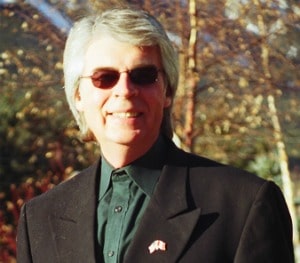
(By Ronald Robinson) As discussed previously, “Be yourself!” has been one of the primary radio inoculations with which new people going on the air are injected. I am reminded of being herded to our grade school kitchen, like sheep to the slaughter, and being forced to watch so many of our classmates quiver, cry, and in some instances, pass out completely while getting their needles. When we heard the call for the janitor with his pail of sawdust, we knew one of our classmates had just provided a severe upchucking.
Tragically, the “be yourself” admonition ties in quite nicely with that other piece of toxic radio dogma, namely the tired ol’ one-to-one edict. The combination of these two massively distorted, but accepted radio lies are introduced as: “When on the air, represent yourself as who you really are and address the audience as a single personal listener.” Senior broadcasters still promote these two inanities. Others allege that a combination of readily available staff credulity and gullibility, and the application of fear-based indoctrination techniques, is also what generate stultified, lurching voters. (See dealer for further details.)
Indeed, part of radio’s dogma has included the sage and unchallenged requirement for on-air folk to be “personal” – the companion to the one-to-one myth. “Personal” has nothing to do with anything. More than that, it is a task that can never be accomplished, and is, in practice, an extremely destructive approach. Any person in the audience, meanwhile, who actually believes a speaker on the radio is communicating exclusively to them, is, indeed, suffering from a radio supported, but still self-induced delusion. A few could be bordering on ape-snake nuts. Therapies are available from caring professionals.
Now, before it’s too late, is an ideal time to establish serious and useful distinctions. To be a successful on-air communicator, talent is better served by concentrating on the following, only one of which is particularly philosophical in nature.
- Instead of making the annoying-to-the-audience and fruitless attempt at being personal, a communicator needs to endeavor to be personable – an appealing individual – a broadcaster an audience member can accept as someone worthy of continued listening. Attempting to connect personally, fails.
- Current and future presenters, to be successful and more influential, will be required to become proficient in the many aspects of becoming superior communicators. This is more than learning how to, like, talk good English. It is about using the language more powerfully, and more effectively.
Neither of those two elements are being incorporated into either the informal or, when rarely available, the formal training of on-air people or copywriters. They are being totally disregarded and/or rejected by ownership and management – in all markets. These are, practically, non-existent concepts in radio – but still worthy of fear and derision. The evidence of that is available all over the dial wherever commercial radio is practiced.
While I am obliged to recognize how popular and successful past and current on-air personalities were and are able to have significant impacts on their audiences, it is still important to note the rarity of such strong individuals. A combination of innate potentials and acquired skills were and are enough for these unique stars to carve out a significant niche for themselves in the available audience.
The rest of us are going to have to learn how, specifically, to get similar results and, perish the thought, create whole segments of new audience. The components are many, varied, and will take meaningful efforts to learn and apply.
“Be yourself” is not one of those components. Delivering some kind of nebulous, unidentified “authenticity” from the performer carries no assurances that any given portion of an audience will find such authenticity to be of any particular interest, or necessarily compelling in other ways. Even sincerity, when coupled with a buck ninety-five, will only provide a medium cup of coffee.
The great radio talents have been those who can, on a whim, deliver single or multiple, well-developed characters or characterizations to an audience. Discerning which of those is real or authentic would be a mug’s game. Everybody else on the air, and writing copy, will have to learn how, specifically. Quickly.
Ronald T. Robinson has been involved in Canadian radio since the ’60s as a performer, writer, and coach, and has trained and certified as a personal counselor. Contact Ron at [email protected]





